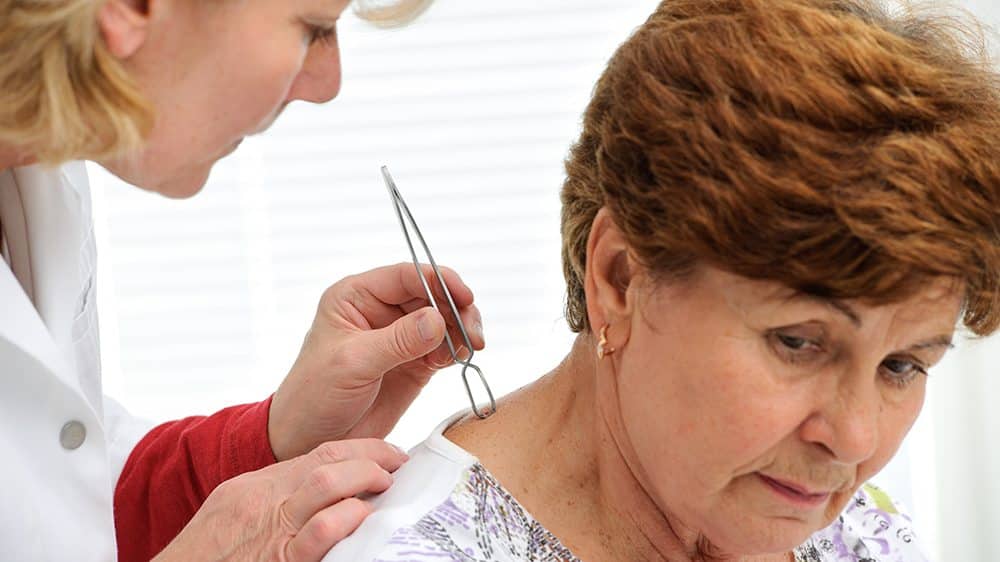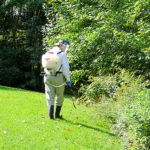 If you’ve been enjoying the outdoors, like many New Englanders do, during our short summer months, then you may have noticed that tick populations have been on the rise in recent years. And to everyone’s dismay, that means cases of tick-transmitted disease have also been increasing.
If you’ve been enjoying the outdoors, like many New Englanders do, during our short summer months, then you may have noticed that tick populations have been on the rise in recent years. And to everyone’s dismay, that means cases of tick-transmitted disease have also been increasing.
Most folks seem to be aware of or even know someone who has contracted Lyme Disease; which is one of the most commonly transmitted diseases through a tick bite. Recently, a lesser known, but serious tick-borne illness, related to West Nile Virus, has been reported in New England with several new cases. We are talking about Powassan Virus (POW).
RELATED: 3 Ways To Prevent Your Family From Getting Lyme Disease
The good news is Powassan is still considered to be a rare disease. Yet, some of the scarier facts include the seriousness of the illness. For instance, it can cause encephalitis or inflammation of the brain to those who do exhibit symptoms. Symptoms can include fever, headache, vomiting, weakness, confusion, loss of coordination, speech difficulties and seizures. It is deadly for about 10% of those who become sick from the virus. And, about half will suffer permanent neurological damage.
The CDC reports that between 2006-2015 a total of 11 cases of Powassan virus were reported in Maine, New Hampshire and Massachusetts combined. However, recently several new cases have been reported in Maine, leaving many folks feeling vulnerable.
Three things you need to know about Powassan:
-
- It’s a virus.
 Unlike Lyme Disease, which is a bacteria that can be treated with antibiotics, viruses are harder to treat, as there are no known cures. Therefore, if you believe you may have POW, it is critical to see your healthcare provider for diagnosis and treatment. Treatments often include hospitalization for intravenous fluids, respiratory support and to reduce swelling in the brain.
Unlike Lyme Disease, which is a bacteria that can be treated with antibiotics, viruses are harder to treat, as there are no known cures. Therefore, if you believe you may have POW, it is critical to see your healthcare provider for diagnosis and treatment. Treatments often include hospitalization for intravenous fluids, respiratory support and to reduce swelling in the brain. - How ticks transmit disease.
Over several days ticks will feed on a host. While doing so, it will secrete small amounts of saliva. The saliva has pain relieving properties to help it go unnoticed. If the host has a bloodborne infection, the tick will now be a carrier of the virus or bacteria. The tick will be able to pass the infection on to its next host, through its saliva. - PREVENTION.
 Avoiding ticks and tick bites is the first line of defense. This begins with avoiding known tick “hot spots,” like tall grass and leaf litter. Using repellents, such as those with DEET as directed by product instructions. This allows you to treat your clothing and sometimes skin when you know you will be in tick-infested locations. Wearing light colored clothing, and long sleeves and pants will cover and protect more of your body and make it easier to see any ticks crawling on your clothing. Performing, regular full body tick checks, examining gear, pets, clothing, etc. will hopefully allow you to find ticks before they have a chance to bite.
Avoiding ticks and tick bites is the first line of defense. This begins with avoiding known tick “hot spots,” like tall grass and leaf litter. Using repellents, such as those with DEET as directed by product instructions. This allows you to treat your clothing and sometimes skin when you know you will be in tick-infested locations. Wearing light colored clothing, and long sleeves and pants will cover and protect more of your body and make it easier to see any ticks crawling on your clothing. Performing, regular full body tick checks, examining gear, pets, clothing, etc. will hopefully allow you to find ticks before they have a chance to bite.
Reduce ticks in your yard. Regularly performing some basic yard work can make your yard less inviting to ticks. For instance, frequently mowing, removing leaf litter, clearing tall grass and bushes near your home are few things that will help. Also discouraging wildlife (tick carriers) from your yard, by removing food sources, or using fencing is suggested.
 Additionally, calling a pest management professional to treat your yard for ticks, will help to significantly reduce the number of ticks in and around your yard. A professional will treat tick hot spots and create a protective barrier around your home and yard.
Additionally, calling a pest management professional to treat your yard for ticks, will help to significantly reduce the number of ticks in and around your yard. A professional will treat tick hot spots and create a protective barrier around your home and yard.
- It’s a virus.
The Modern Method
New England is one of the areas most at risk for tick born illness, which is why at Modern we offer a new combined Mosquito & Tick treatment program. Not only do you receive more value, through added protection against both ticks and mosquitoes; You will be getting more bang for your buck! That is because you get two services, Tick & Mosquito, for the price of one.
Our program consists of 5 monthly treatments, between May and September, and has proven to reduce both tick and mosquito populations effectively. Let us help you take back your yard and give you peace of mind – call or get a FREE online quote today!
